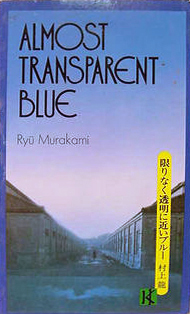Nancy Andrew (1947–1998): Scholar and Translator
 Nancy Andrew was my friend for twenty years. I met her first when we worked together on the Encyclopedia of Japan, in Cambridge, Massachusetts. Nancy was then a graduate student in the history department at Harvard and she contributed articles about Japanese history to the Encyclopedia in her spare time. She was one of the first American scholars to investigate the history of the women’s movement in Japan. Throughout her life, she kept up this interest in women and in the social forces that shape their lives.
Nancy Andrew was my friend for twenty years. I met her first when we worked together on the Encyclopedia of Japan, in Cambridge, Massachusetts. Nancy was then a graduate student in the history department at Harvard and she contributed articles about Japanese history to the Encyclopedia in her spare time. She was one of the first American scholars to investigate the history of the women’s movement in Japan. Throughout her life, she kept up this interest in women and in the social forces that shape their lives.
Nancy had lived in Japan for some time before graduate school and in 1984, she returned to Tokyo to work at NHK’s overseas division. She was perfectly suited to her work there because she was a fast and careful translator gifted in English and Japanese. With sure instincts, she could transform Japanese scripts into smooth and informative English programs. She took great pride in these skills and pitied those less talented translators who could not similarly give Japanese sentences a new and vibrant English life. She liked the fast pace of NHK and enjoyed being part of breaking news. This was a great change from her earlier days as a scholar, and there were some, like me, who were always urging her to get back to translating more lasting, full-length works (like her translation of Murakami Ryu’s Almost Transparent Blue). But she was hooked on the news and on her role in bringing it to an English-speaking audience.
I used to see Nancy frequently whenever I was in Tokyo and we would meet in various haunts around town where we would catch up on each other’s doings. Nancy’s canny, keen intelligence was as idiosyncratic as her whispery voice. I can hear that soft voice now, talking to me about the Kobe Earthquake, her impression of a new kabuki actor, or whether we would really retire some day to Hawaii. Nancy was the most thoughtful of friends, blessed with a kind heart that itself had endured much suffering. To the end, she lived with integrity, true to principles others might have found odd. She would have refused my sorrow, but now she can’t stop me from saying how much I feel it.
© Phyllis Birnbaum, 1999.
Originally published in the SWET Newsletter, No. 84 (March 1999), p. 31.
(More about Nancy Andrew may be found at http://en.wikipedia.org/wiki/Nancy_Andrew.)

Comments:
There are no comments for this article yet.
Add your comment:
If you are a SWET member, log in to post a comment immediately. Comments are moderated for non-members.